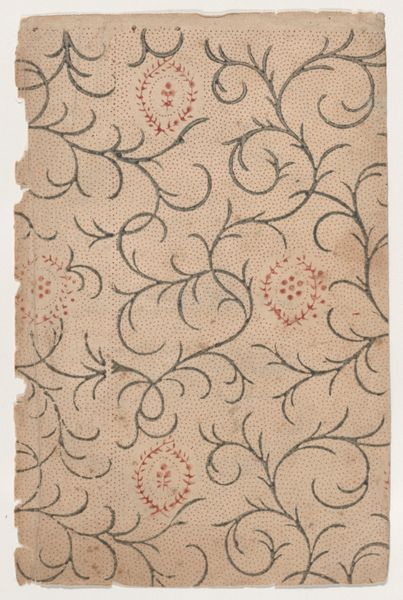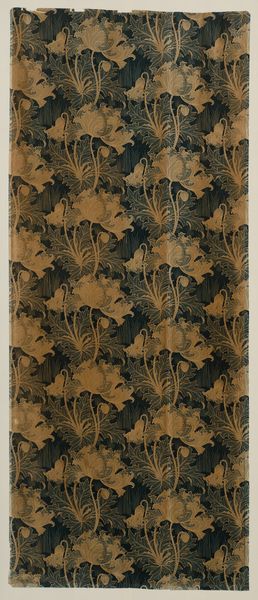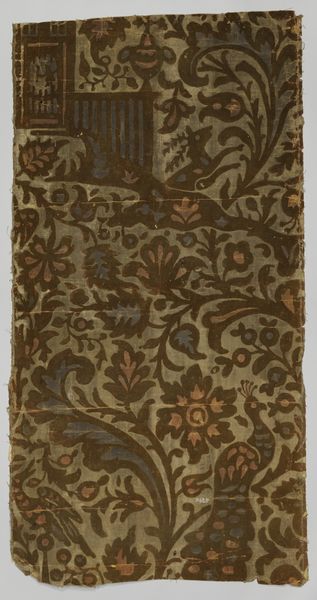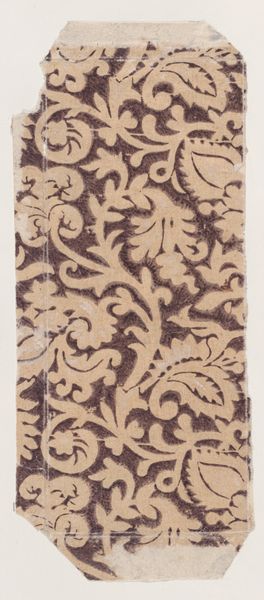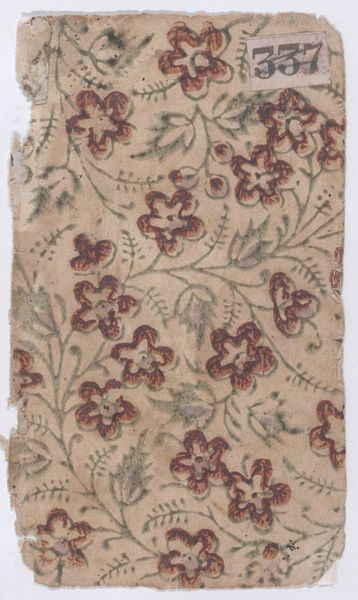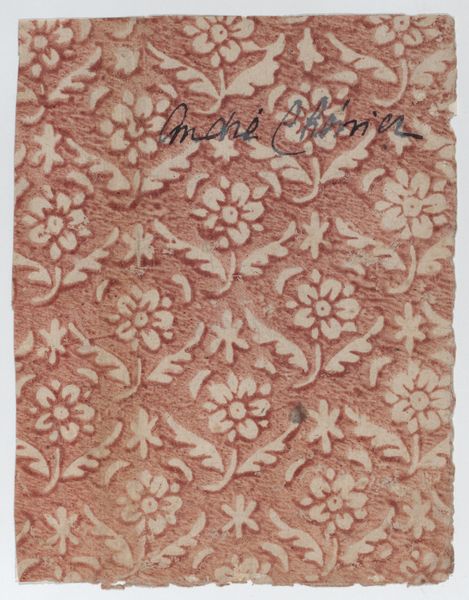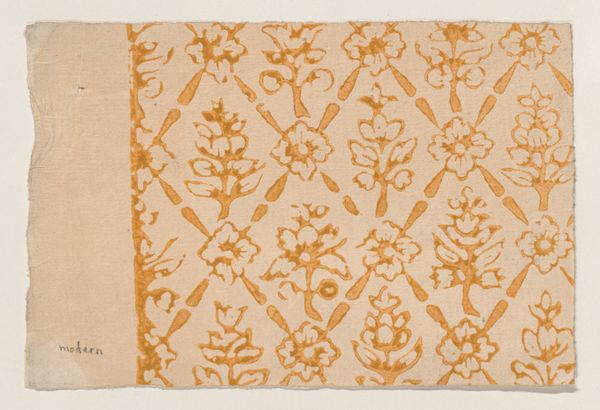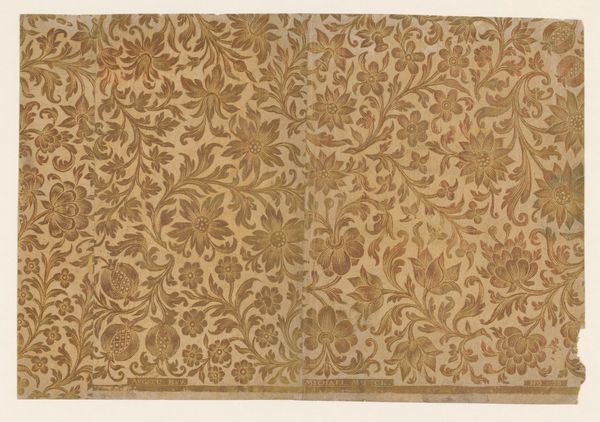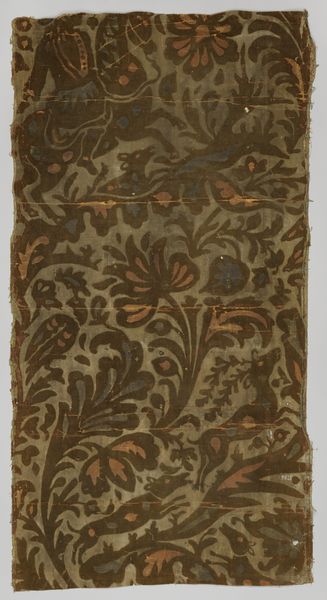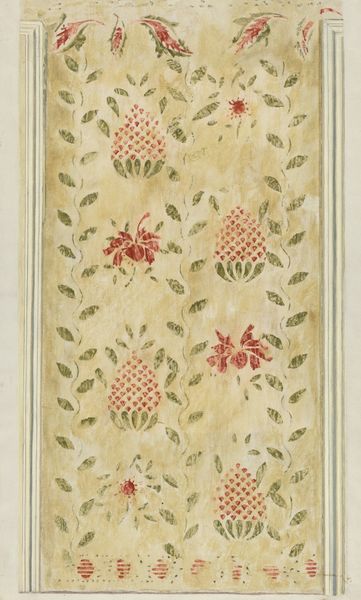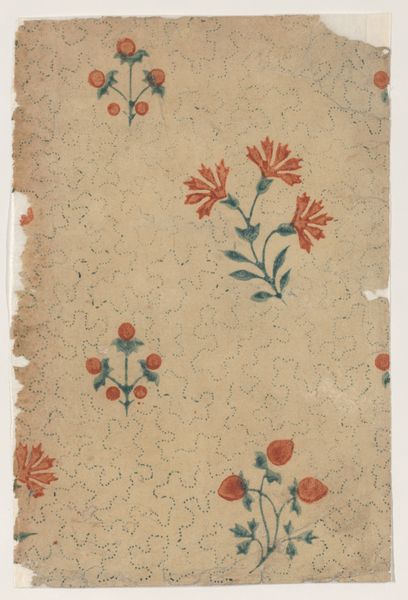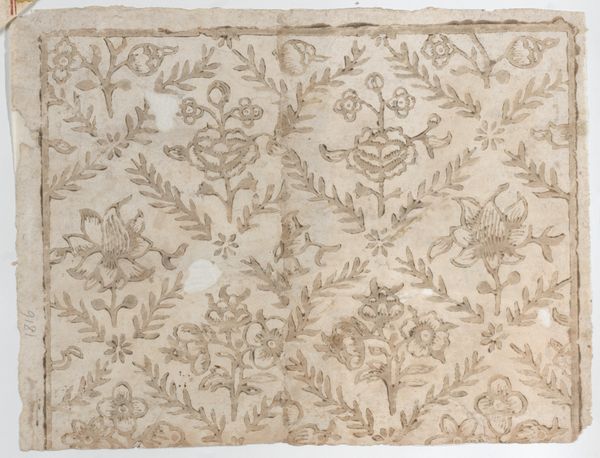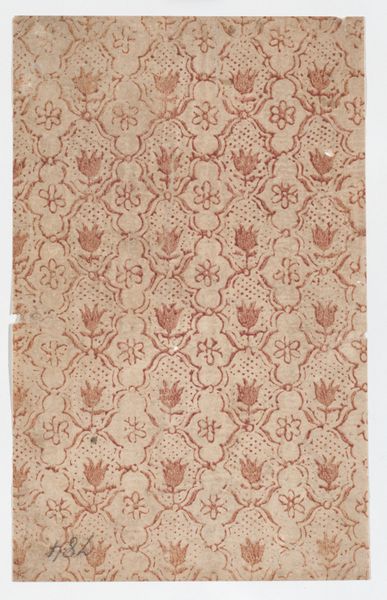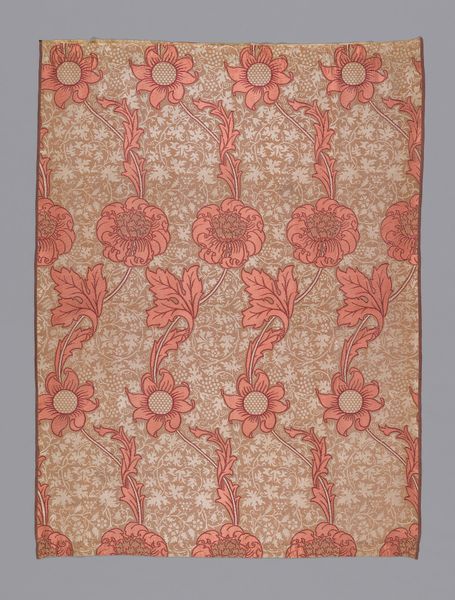
drawing, print, textile
#
drawing
# print
#
pattern
#
textile
#
geometric
#
line
#
textile design
#
decorative-art
#
imprinted textile
Dimensions: Sheet: 7 13/16 × 4 3/4 in. (19.8 × 12 cm)
Copyright: Public Domain
Editor: This is a printed textile design called "Sheet with overall curved vine pattern" made sometime between 1800 and 1900 by an anonymous artist. The pattern gives it a sense of flowing movement. I wonder about its purpose; how would something like this be received by the public in that period? Curator: That’s a keen question. Remember that textile designs weren't simply aesthetic choices. They were deeply intertwined with socio-economic structures. Think about it: who was producing this? Who was consuming it? How might a repeated vine pattern speak to notions of growth, prosperity, even empire, given the historical context of expanding colonial powers at that time? Editor: So, this seemingly simple pattern might carry much heavier implications? Could it have reinforced existing social hierarchies? Curator: Absolutely. Consider the Industrial Revolution's impact. Printed textiles became more accessible, shifting the dynamics of class and consumption. Did this design, with its naturalistic motifs, represent a yearning for a pre-industrial past, or was it embracing the new possibilities of mass production? The decorative arts often embody these kinds of contradictions. Editor: That’s fascinating! I always considered textile design as purely aesthetic. Now I see how much deeper it goes! Curator: Indeed. It reveals that even the most unassuming pattern reflects larger historical forces at play. Editor: I will certainly look at textile designs differently moving forward! Thanks.
Comments
No comments
Be the first to comment and join the conversation on the ultimate creative platform.
